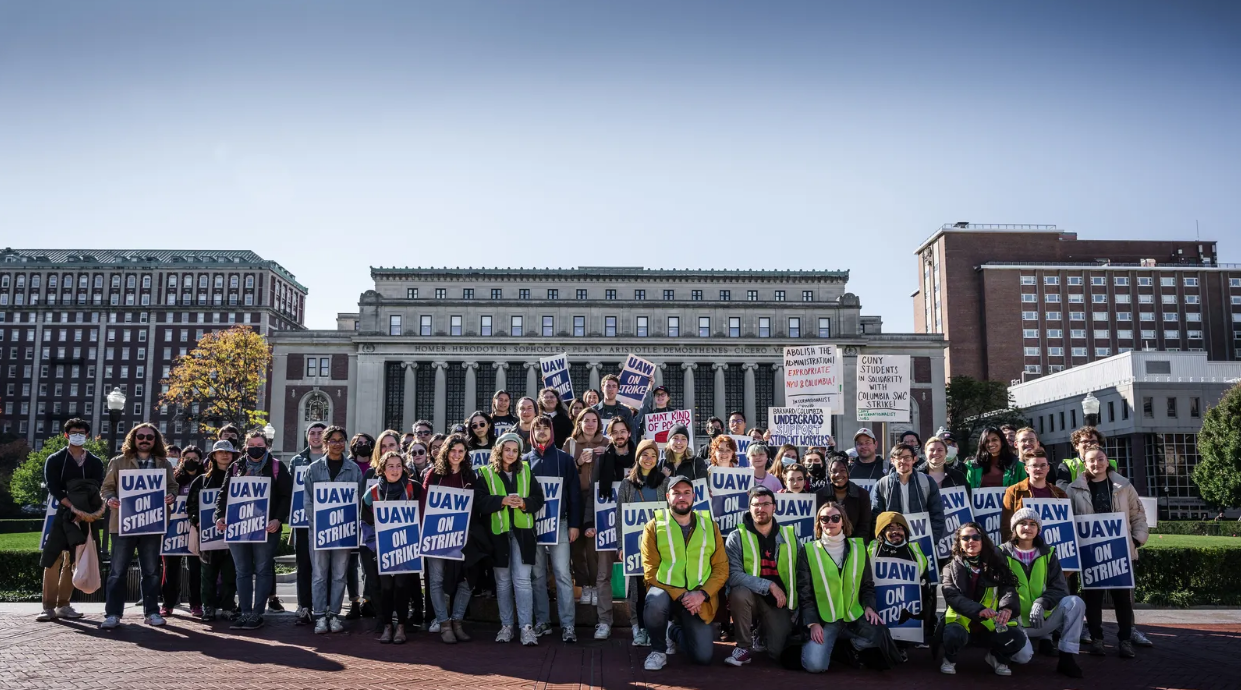Teen Vogue speaks to student workers at Columbia about what's at stake.
The biggest open-ended strike in America is happening at Columbia University in New York City. As of November 18, following the ratification of the John Deere union contract the night before, the Student Workers of Columbia (SWC)-UAW Local 2110 unit of 3,600 student workers is now the largest striking body in the country. Their strike, the second they’ve launched in 2021, initially began on November 3, and entered into mediation with the university on Monday.
After an October so flooded with union activism the media christened it “Striketober,” student workers at Columbia are continuing the rush of labor organizing. Teen Vogue speaks to three Columbia graduate and undergraduate student workers about how they got involved in the union and what’s at stake for them, students across the country, and workers.
“We are parents and caretakers. We are debt-burdened. We have bodies and teeth that require medical attention, leaving us with bills we cannot pay, or unwilling to seek the care we need," Lexie Cook, a Ph.D. student and student worker at Columbia, tells Teen Vogue. “We cannot afford to live in New York. We cannot afford to live in fear of abusive advisors and superiors.”
“But it’s not just what’s at stake for us,” Cook continues. "We are far better off than many of our fellow student workers at other universities. If we cannot secure a living wage and decent health care from a university as monstrously rich as Columbia, what kind of precedent does that set for them?”
Teen Vogue: Please share a bit about yourself and why and how you got involved with this organizing effort.
Tamara Ailin Hache: I'm a fourth-year Ph.D. student worker at the Department of Latin American and Iberian Cultures. This means I have research responsibilities and teaching responsibilities. Regarding my teaching, I’m an instructor of record, which means I do all the work by myself: I plan my classes; I teach twice a week; I hold office hours and answer emails; I prepare all the assignments and grade all the assignments; I even design the syllabus from scratch. So it's a lot of work.
Don’t get me wrong, I love it. I love teaching so much! Nothing makes me happier. It’s the reason I chose to pursue my Ph.D. here at Columbia University — their teaching program. I knew that’s what I wanted. But what I didn’t know is that coming to Columbia, a very, very rich Ivy League, would result in me and my colleagues having to endure such precarious working conditions.
Becca Roskill: I’m an undergrad course assistant in computer science and a member of the Student Workers of Columbia Bargaining Committee. I’ve been involved in student worker organizing since I started TA'ing. I have seen firsthand how important student labor is to teaching and research at Columbia, and I believe the university has an obligation to provide fair compensation and safe and healthy working conditions for its student workers in return.

